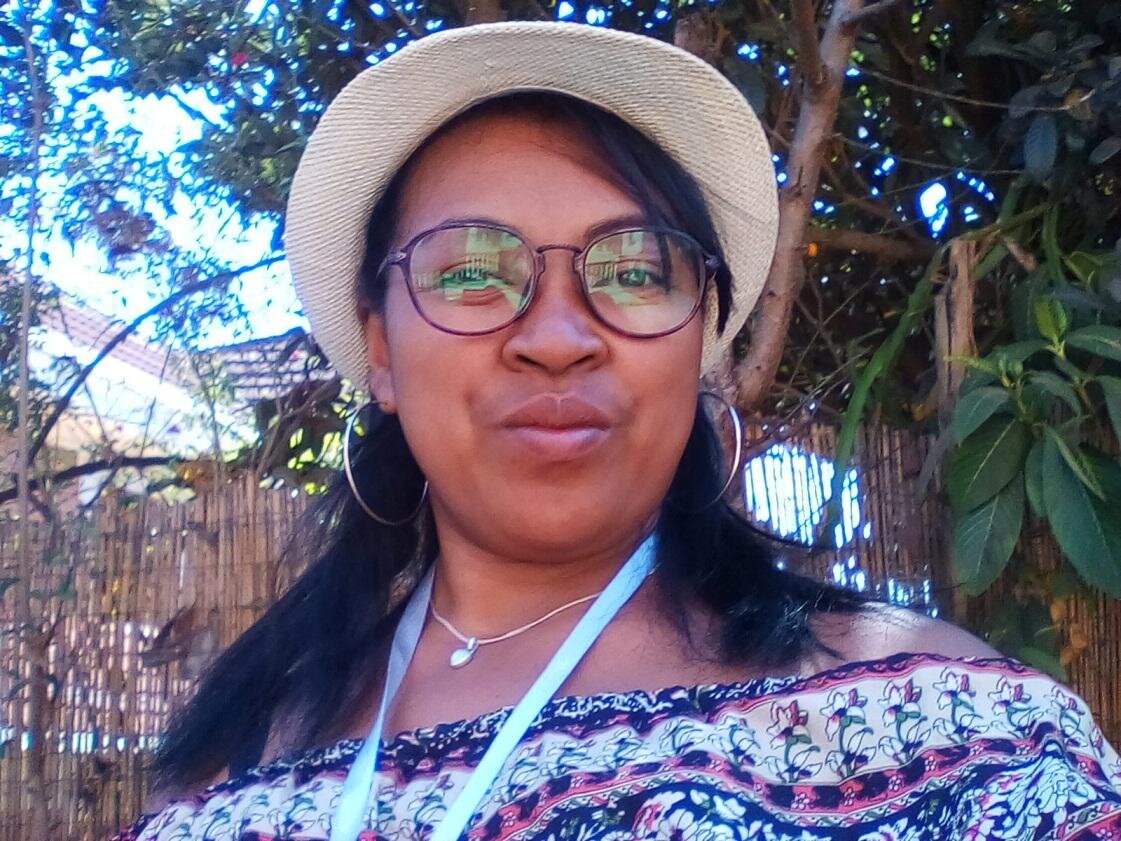Board of Directors
Rija Rasamimanana is a senior geologist, having expertise in gold survey and prospection. He has interest in the general environment as well as sustainable development. He believes that environmental protection could be coupled with large-scale development projects. He serves as Chair of the Board of Directors at IMPACT Madagascar.
Contact: impact.mada@gmail.com
Josia Razafindramanana, PhD., has created several research and conservation programmes in Madagascar, including the Sifaka Conservation programme (back in 2011) aiming to protect fragmented crowned sifaka populations and the remaining dry forests in Madagascar. Her interest is broadly based in applied ecology for conservation management and decision-making processes, as well as corporate engagement on environmental programmes. She co-founded the NGO IMPACT Madagascar, in 2013, to champion biodiversity conservation in surrounding communities. She now serves as a member of the Board of Directors.
Chuck Farrell is an ER nurse and combat flight medic with nearly two decades of experience in emergent and field medicine. Accompanying his wife Anne to Madagascar as part of a lemur census in 2014, he fell in love with the people and wildlife of southern Madagascar, and was proud to lead a series of healthcare classes for the local people of Berenty. He is currently a member of the Board of Directors for IMPACT Madagascar.
Anne Walker Farrell is a Los-Angeles-based artist and animator, whose passion for adventure and nature (specifically, lemurs) led her to volunteer with her husband on a lemur census at Berenty Reserve, Madagascar in 2014. She is proud to support IMPACT Madagascar as a web designer, illustrator, and member of the Board of Directors.
Kathryn Scobie joined Impact Madagascar in 2015, first as a Project Coordinator and then Project Manager, after spending 12 months in southeast Madagascar studying the behaviour and ecology of woolly lemurs. She is now studying for a PhD in biological sciences at the University of Aberdeen, researching the problem of rodent pests in Madagascar and their impact on agriculture and public health. She is passionate about promoting conservation in partnership with local communities, and so she is very excited to be able to continue working with IMPACT Madagascar on their community-led conservation, development, and research projects.
Nancy Gladstone has been fascinated by Madagascar’s unique biogeography since taking a course on the Human Impact on the Natural Environment at the University of Cambridge as part of her Natural Sciences degree. She was lucky enough to have the chance to undertake fieldwork there during her MSc and has traveled there many times since. She has experience in developing, editing and publishing environmental education resources, as well as the coordination and financial management of research projects. She is excited to support Impact Madagascar with its practical conservation and community development initiatives.
conservation & research
Hayley Westcott is originally from California, USA where she got her Bachelor’s degree from UCLA majoring in Geography/Environmental Studies and French. She spent her third year studying French in Lyon, France where she fell in love with the language. After she graduated, she took a gap year in Australia where she traveled, worked, and volunteered before pursuing a postgraduate degree. She then moved to Ireland where she completed her MSc in Biodiversity and Conservation at Trinity College, Dublin where her thesis was a study on ring-tailed lemurs. This is her first time in Madagascar, but it is where she has dreamed of living and working since she was a child. She is currently the Project Manager at IMPACT Madagascar.
Rakotondrabe Andriamihaja Rado is a trained primatologist. He completed his master’s thesis on the species Propithecus coronatus at the University of Antananarivo. He has participated in several international conferences, both in Madagascar and abroad, presenting research results on lemurs and their conservation. Having worked more than 10 years in lemur conservation, he has extensive experience in the field. At IMPACT, he assists in coordinating the Sifaka Conservation programme, as well as leading the conservation activities at Ankirihitra Ambato-Boeny site. Rado is also a member of Madagascar Primate Research Group (GERP).
RATSARALAZA Herisitraka obtained his postgraduate degree (Diplôme d’Etude Approfondie) in 2010 specializing in Applied Plant Ecology within the Department of Biology and Plant Ecology at the University of Antananarivo. Sitraka received specialized training in ethnobotany on the use of medicinal plants in rural areas. He has various experiences in plant ecology and botany. His various studies and investigations of lemur habitat since 2011 have allowed him to gain experience in biodiversity conservation, environmental education, and renewable natural resources, working alongside local populations and technical services. At IMPACT Madagascar, Sitraka is a botanist in charge of habitat restoration projects, as well as the management of Dabolava area. He is also a member of GERP (Groupe d’Etude et de Recherche sur les Primates de Madagascar.)
RAKOTOARINIVO Toky Hery began immersing himself in lemur conservation in 2007 when he was selected to follow a course entitled "Nursery in Primatology" organized by the Madagascar Primate Research Group (GERP). He got his master’s degree in Primatology in 2010. He began his professional career in 2011 focusing on lemurs and biodiversity conservation within the Sifaka Conservation programme. He has attended several international primatology conferences to present his research results. His areas of expertise are primatology, conservation biology, ecological monitoring, protected areas, and the transfer of natural resource management. He is in charge of the management of the Mahajeby and Vohitrarivo project sites at IMPACT Madagascar.
RAKOTOARISOA Andoniaina Harilala obtained his master's degree in Applied Physiology of Animal Nutrition from the Department of Animal Biology at the University of Mahajanga in 2005. Following his master’s studies, he worked in the field of aquaculture (shrimp farming) as a Technician Biologist in charge of the hatchery. He completed an advanced master’s degree on lemur ecology in 2011, after carrying out a study on the feeding behavior of the sympatric species Eulemur collaris and Lemur catta in the forest of Ambatotsirongorongo in Fort Dauphin. At IMPACT, he is responsible for research and conservation at our Madiromirafy site. He is a member of the Madagascar Primate Research Group (GERP).
After graduating from the Ecole Normale Supérieure, University of Antananarivo, with a degree in Natural Sciences, RUVA FIANDRY Fenomanana became a trained educator with great teaching skills. He also has extensive experience in the collection and analysis of ecological data. He has been working on various research programmes in Madagascar. At IMPACT Madagascar, he excels in his role as an Assistant Biologist where he is in charge of various activities including mapping through GIS, fieldwork, and environmental education programmes.
Mahefa ANDRIAMAVOSOLOARISOA is a junior conservation biologist. He got his master’s degree from the University of Antananarivo in 2018. His master’s thesis focused on the study of the fish community in the Melaky region of Madagascar. He is particularly interested in the Madagascar’s endemic fishes. After his postgraduate studies, he worked on different conservation projects including reptile monitoring, bird monitoring, and the monitoring of diurnal and nocturnal lemurs. At IMPACT Madagascar, he is in charge of the wetlands at our project sites.
community development
Fenomanantsoa Noëlla RABEONY is an agricultural engineer specialized in the agri-food field. In 2016, she obtained her engineering degree from the Ecole Supérieure des Sciences Agronomiques (School of Agricultural Sciences) after completing a study on the effects of plant diseases on the essential oils of two species of Eucalyptus at the Malagasy Institute of Applied Research (IMRA). She then worked in the field of animal husbandry for one year. She has been working at IMPACT Madagascar as the Community Development Officer since 2017.
RABEMANDIMBY Georges Herisolo obtained his diploma as an agricultural technician in 2002 following training at the Tombontsoa establishment in Antsirabe. He started his career as a technician in 2003 and through his experiences he has developed numerous valuable skills. He has evolved in his career by holding a variety of roles and duties in different organizations including working as a technical manager and a seed producer. Since October 2019, he has been an Agricultural Technician at IMPACT.
RAKOTONANDRASANA Ndimbisoa is an agricultural technician, having graduated from the Ecole Professionnelle Supérieure Agricole de Bevalala. He completed 14 types of training in several fields to strengthen his capacities in agricultural production. From 2006 to 2013, he held the position of Agricultural Technician at BRL Madagascar and from 2014 to 2015 at SD Mad Ambatondrazaka. From 2015 until now, he has held the role of Agricultural Technician within IMPACT Madagascar.
administrative staff
Rova Haingotiana RAMAROSON obtained her degree in "Management and Business Management" in 2013 from the University of ESTIME after volunteering in the Public Health Service of Toliara II on the Administrative Management staff. Since October 2015, she has been in charge of the Administration and Finance at IMPACT Madagascar. In her role, she supervises the NGO’s accounts, the management of funds and the treasury, and is in charge of the planning of accounting and tax declarations. She enjoys working alongside conservationists helping them to achieve effective management in financing.
Dinah has been a committed driver at IMPACT Madagascar since 2014. He is an experienced driver who knows how to navigate challenging road and weather conditions, ensuring that the team can reach important sites for biodiversity conservation. He plays a vital role at IMPACT and gives us the ability to efficiently and properly run our wide range of activities.



















